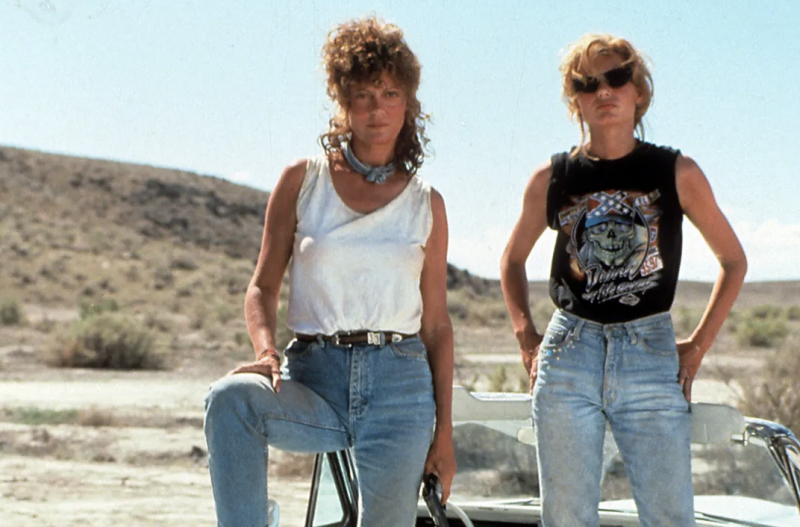One of the most startling things about this conclusion is that the viewer is supposed to find some semblance of satisfaction in the aftermath of Catherine’s gory murder. We see her spirit join forces with the ghost of the last woman murdered in the house, to make sure that George doesn’t get away. They wake Justine from her coma so she can tell police what George did. Then they guide a sailboat carrying an escaping George into the eye of a storm, and to his certain death.
Writer/director Shari Springer Berman told Decider that she viewed the movie’s message as empowering. “I was excited to make a film where we showed a woman trying to find her voice, and to get her voice with the help of some very unexpected allies.”
That’s all well and good, but in Things Heard and Seen—just as in Thelma & Louise—the punishment for a woman seeking liberation is death. The fact that the movie asks us to celebrate this outcome because it results in the punishment of a sociopath is fairly astonishing. Even more so because it’s also exactly what happens at the end of Promising Young Woman.
For the first half of its narrative, Promising Young Woman—also like Thelma & Louise—offers wish fulfillment for women. When we meet her, Cassie is already wide awake to life’s misogynistic realities. She has been since her best friend Nina’s rape and subsequent suicide in college. Now, in a defiant expression of vengeance, Cassie goes to clubs alone, acts inebriated and waits for a “nice guy” to help her. Once these men try to take physical advantage of her (and they always do), Cassie snaps awake and teaches them a lesson.
One of Promising Young Woman’s great successes is in its portrayal of predators. These are not outwardly creepy, drooling boogie men. They are men who look and act, on the surface at least, like people you know. Driving the point home further is the fact that each of them is played by a beloved comic actor—Sam Richardson, Adam Brody, and Max Greenfield all appear. This, the movie quietly informs the men watching, is why women live in fear. It’s impossible to tell the difference between the nice guys and the would-be rapists until it’s too late.
It is when Cassie tries to exact revenge on Al, the man who raped Nina, that the narrative goes wildly awry. Al manages to get free from Cassie’s handcuffs and murders her; smothering her to death before callously burning her body. It’s a vicious and deeply disappointing end for a realistically flawed character who simply wanted to feel some semblance of justice in her lifetime. Similar to Things Heard and Seen, the viewer is supposed to find subsequent relief from the fact that Cassie’s death sets off a chain of events that results in the arrest of Nina’s rapist—this time, for murder.


